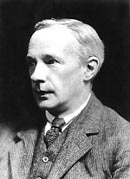I’m a moral realist. That means that I think there really are some moral facts. It is wrong to do some things, and it is right to do some things, and this isn’t just a vent of emotion or an expression of my will, it’s really true. Stephen Law is also a moral realist, but if I’m reading him rightly in his debate with William Lane Craig on the existence of God or in his more recent discussion with me on the Unbelievable radio show where I discussed the moral argument for theism, he’d sooner give up moral realism than accept theism.
An argument I sketched in that discussion was that the best way to explain moral facts is by reference to God. Although he does currently believe in moral facts, he noted that they may not be there after all, so maybe there’s no reason to invoke God as an explanation. After all, he said, we can come up with an evolutionary explanation of why we would believe in moral facts whether they really existed or not. Law wants to be careful here. At the time I raised the concern that this may just be a case of the genetic fallacy, offering an explanation of where a belief came from as though this showed or suggested that the belief is false. But this isn’t what Law means to say, he replied. The point is not that the existence of an evolutionary account of why moral beliefs exist shows that those beliefs are false. That would indeed be the genetic fallacy at work. No, the point is that whether those beliefs are true or false, there exists the same evolutionary account for why we hold them – and that account is unaffected by their truth or falsehood. There is thus no particular reason to think that the evolutionary processes that brought them into being is likely to produce true-belief forming processes.
While this line of argument does not purport to show that the moral beliefs we hold aren’t true, it’s meant to cast doubt on the probability that the process that gave rise to these beliefs (or at least the process that gave rise to the relevant belief forming processes) is likely to result in either true beliefs or reliable belief forming faculties. It’s best to think in terms of the latter, if only because it’s downright bizarre to think that evolution forms beliefs. It plainly doesn’t, but it does form mechanisms or processes that creatures use to form beliefs.
So what should we make of this? Can we give an evolutionary account of why we would believe in moral facts, an account that is blind to the actual existence of those facts? Secondly, if we could give an account like this, would it undermine the probability that the processes that form those beliefs are reliable? I will give two answers: Yes, it is trivially true that we can give an account like this, and no, the fact that we can do so should not undermine our confidence in the belief form process that forms moral beliefs. In doing so I will be drawing on an argument by Alvin Plantinga, namely the “evolutionary argument against naturalism.” While I am inclined to think that argument is unsound, many of the insights that it draws attention to are true nonetheless.


 In the “nuts and bolts” series, I explain and discuss some of the fundamental ideas in philosophy (and theology sometimes) that are taken for granted within the discipline, but which might not be very well known to ordinary human beings. This time the subject is ethical intuitionism (or moral intuitionism).
In the “nuts and bolts” series, I explain and discuss some of the fundamental ideas in philosophy (and theology sometimes) that are taken for granted within the discipline, but which might not be very well known to ordinary human beings. This time the subject is ethical intuitionism (or moral intuitionism).